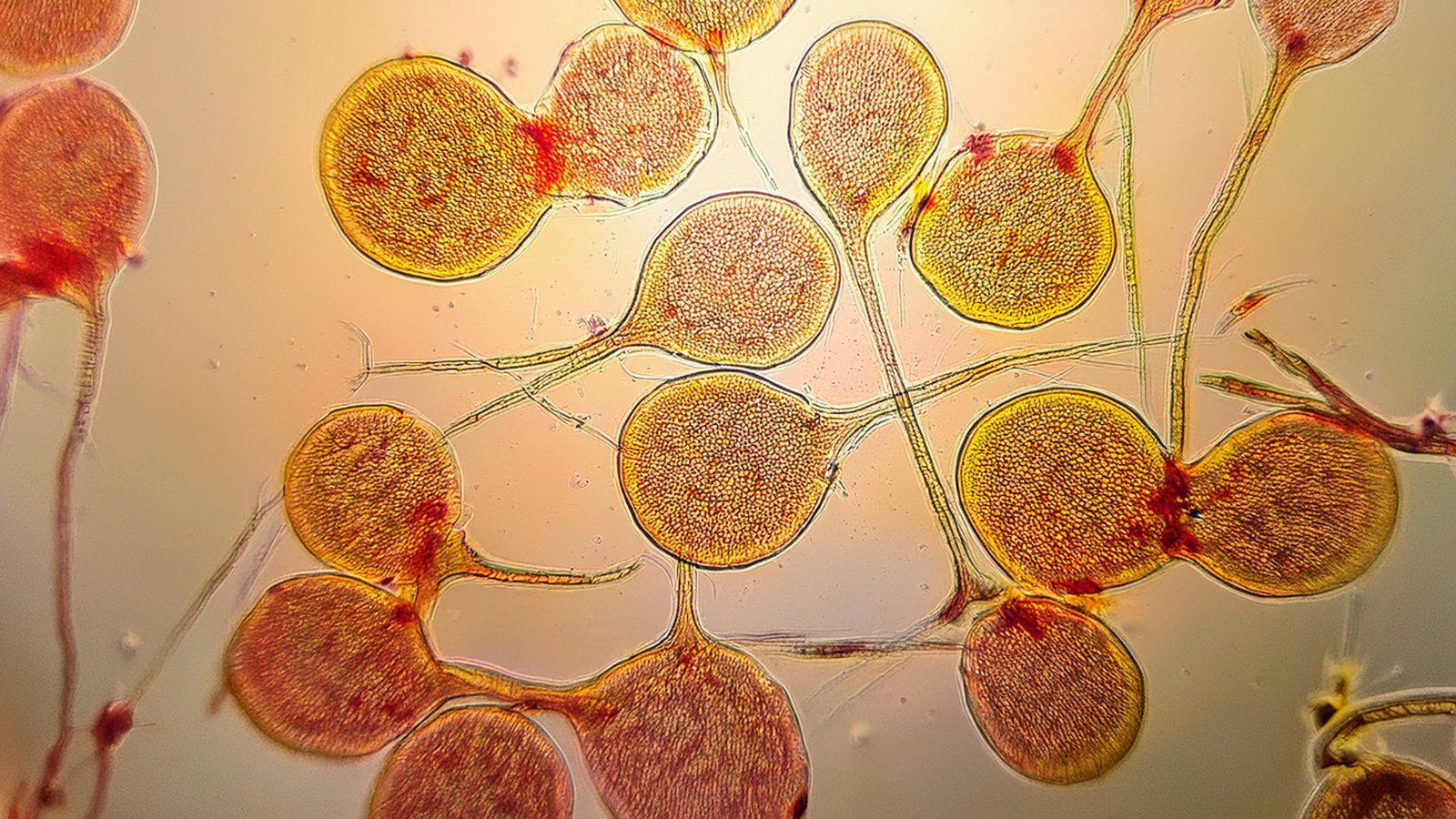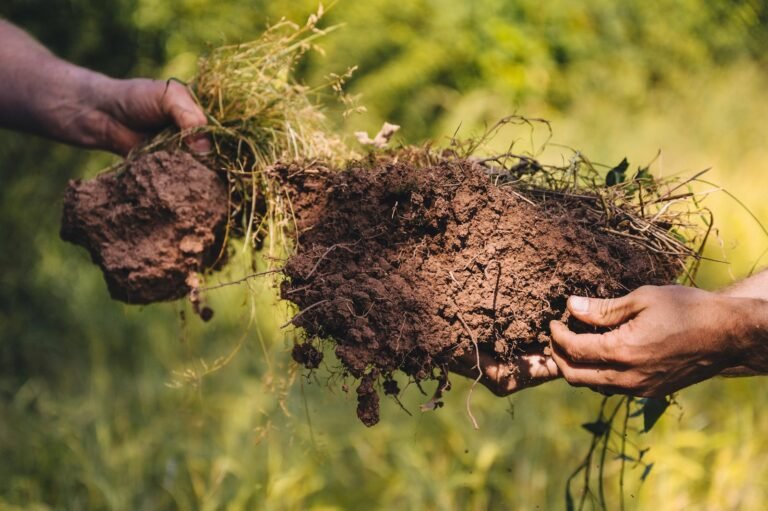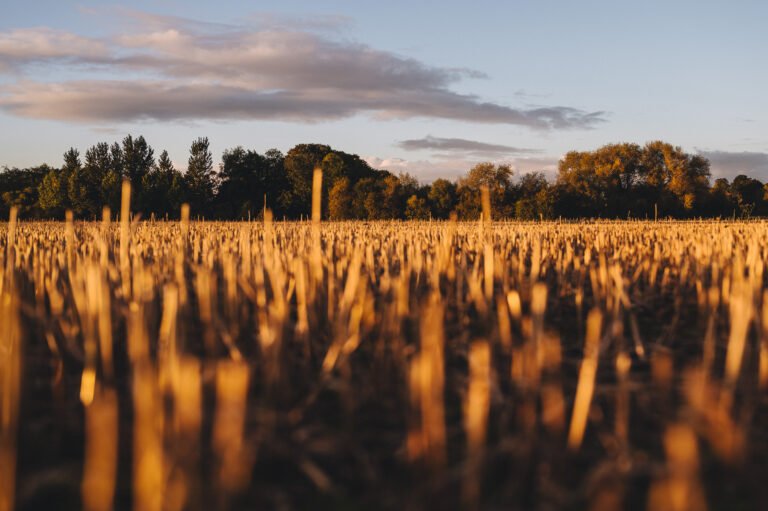Tiny Fungi, Big Impact
Healthy soil is more than just dirt, it’s alive. Beneath our feet, millions of microscopic organisms are working to feed and protect plants. One of the most powerful among them is Glomus, a type of arbuscular mycorrhizal fungus (AMF). This tiny ally forms close partnerships with plant roots. Together, they help crops grow stronger, absorb more nutrients, and survive harsh conditions.
Think fungi are just for mushrooms? Think again.
Glomus fungi live underground, where they boost nutrient uptake, help roots grow deeper, and even make plants more drought-resistant.
At BactoTech, we’re using these amazing allies in Rhizo Forte and Biogarden Grass to give crops and lawns the underground support they deserve.
Unlike synthetic fertilisers, which can harm the environment, Glomus works with nature. It extends the plant’s root system using fine threads called hyphae. As a result, plants can reach nutrients and water that would otherwise be out of reach. It’s nature’s way of making farming more efficient, and more sustainable.
At BactoTech, we’ve harnessed this natural power in two products: Rhizo Forte, used by farmers in arable fields, and Biogarden Grass, designed for greener, stronger home lawns. Let’s explore why this fungus is so important and how it can help you grow healthier crops while protecting your soil.
Key Facts
Symbiotic Power: Glomus forms a mutualistic relationship with plant roots, boosting phosphorus and nitrogen uptake.
Stress Support: Helps plants survive drought, salinity, heat, and heavy metal stress.
Growth Booster: Enhances root biomass, chlorophyll content, and overall plant health.
Soil Builder: Produces glomalin, a sticky protein that improves soil structure and water retention.
Scientifically Proven: Backed by dozens of peer-reviewed studies in journals like Frontiers, Springer, and MDPI.
Used in BactoTech Products: Found in Rhizo Forte (for farm crops) and Biogarden Grass (for lawns).
Eco-Friendly Solution: Reduces the need for synthetic inputs by enhancing nutrient efficiency naturally.
Wide-Spectrum Benefits: Effective across legumes, cereals, vegetables, and turfgrass systems.
1. Nutrient Supercharging: Unlocking Nature’s Fertiliser
One of the greatest strengths of Glomus fungi lies in their ability to boost nutrient uptake, especially phosphorus and nitrogen. These nutrients are essential for plant growth, yet they’re often locked in the soil or present in forms that plants can’t absorb easily. This is where Glomus steps in.
Through their fine hyphae, these fungi expand the plant’s reach into the soil. Think of it as giving roots an extra network of microscopic straws. As a result, plants can absorb more phosphorus, even in nutrient-poor soils. At the same time, Glomus also improves nitrogen absorption, particularly when combined with organic matter or biological nitrogen fixers like Rhizobium and Azotobacter .
Moreover, research shows that species like Glomus intraradices and Glomus aggregatum can enhance the availability of zinc and copper, contributing to healthier and more resilient crops . Farmers using these fungi often see better root development, greener leaves, and stronger shoots, all signs of improved nutrient status.
In BactoTech’s Rhizo Forte and Biogarden Grass, we’ve included carefully selected Glomus strains that are known for their nutrient-enhancing properties. This makes them ideal for both conventional and organic growers aiming to reduce artificial fertiliser use while improving results naturally.
2. Stress? No Problem: Helping Plants Thrive in Tough Conditions
Farming is full of challenges, from heatwaves and droughts to salty soils and heavy metals. Fortunately, Glomus fungi act like a natural shield, helping plants stay strong when the environment turns harsh.
For example, Glomus mosseae has been shown to boost photosynthesis and reduce damage from cadmium toxicity . That means plants can keep growing, even in soils that would normally hold them back. What’s more, these fungi improve water absorption, helping plants survive longer during drought conditions. They also reduce the impact of salty soils by balancing ion levels in plant tissues .
This stress support isn’t just for lab settings, it’s been proven in the field. Farmers using Glomus inoculants often report more consistent yields during dry seasons or when soil quality is poor. And since Glomus forms a long-lasting relationship with roots, the benefits continue throughout the growing season.
BactoTech’s RhizoForte and Biogarden Grass contain Glomus strains selected specifically for their stress-resilience features. When your plants are supported by these fungi, they don’t just survive, they thrive.
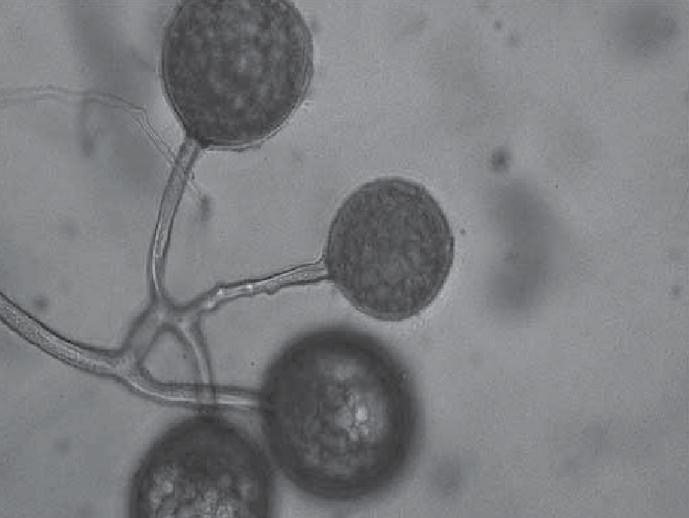
3. Soil Health and Structure: Building Strong Foundations
Healthy plants need healthy soil, and Glomus fungi help make that happen. These microscopic allies improve soil structure by producing a sticky protein called glomalin. This substance binds soil particles together, forming stable aggregates that enhance water retention and air flow.
Good soil structure doesn’t just benefit roots. It also reduces erosion, boosts microbial activity, and helps nutrients stay where plants need them. Fields treated with Glomus-based products like Rhizo Forte or Biogarden Grass often show better moisture balance, even after dry spells or heavy rain.
Researchers have also found that Glomus fungi increase organic matter content in the soil. Their hyphae reach deep into the ground, drawing in nutrients and creating channels that improve root penetration and soil aeration.
By strengthening the root zone and supporting beneficial microbes, Glomus fungi help farmers build fertile, living soil, a key asset in regenerative and sustainable farming.
4. Symbiotic and Sustainable: Nature’s Win-Win Partnership
Glomus fungi don’t just support plant health, they form a true partnership with roots. In this symbiotic relationship, the plant provides sugars produced through photosynthesis, while the fungus delivers hard-to-reach nutrients and water.
This natural exchange reduces the need for synthetic fertilisers. In fact, when farmers introduce Glomus species into their soil, like Glomus aggregatum or G. intraradices – they often see a drop in input costs without compromising yields.
Even better, this relationship improves over time. As the fungi colonise more root systems, they boost nutrient cycling and support long-term soil regeneration. It’s a self-reinforcing loop,plants grow stronger, soil becomes healthier, and farming becomes more resilient.
Because of their deep-rooted benefits, Glomus fungi fit perfectly into regenerative agriculture and low-input farming systems. When used in products like Rhizo Forte and Biogarden Grass, they offer farmers a reliable, eco-friendly path to productivity.
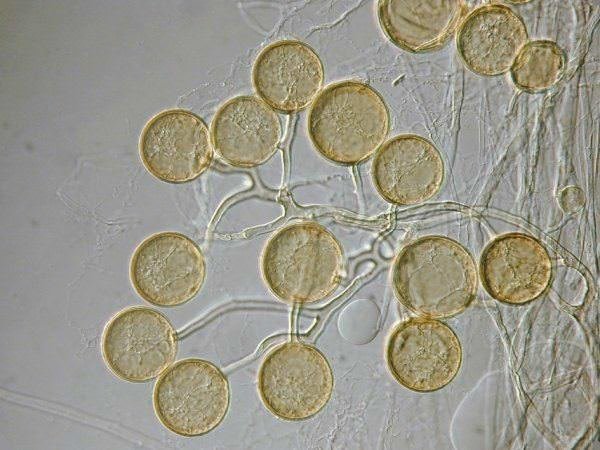
5. Real-World Use in BactoTech Products
At BactoTech, we don’t just talk about soil health, we deliver it. That’s why we include Glomus fungi in two of our microbiological solutions, each tailored to different needs.
Rhizo Forte – Built for Farms
This formulation is designed for legumes and other crops. Rhizo Forte pairs Glomus with nitrogen-fixing bacteria to boost nutrient uptake, strengthen root systems, and improve yield. By enhancing root colonisation and symbiotic efficiency, it helps farmers get more from every hectare, naturally.
Biogarden Grass – Made for Lawns
Perfect for home use, Biogarden Grass helps lawns stay lush and green even during dry spells. With Glomus fungi promoting stronger root growth and improved access to nutrients, your garden gets the biological boost it needs to thrive with less water and fewer chemicals.
In both products, we make sure Glomus fungi are delivered exactly where they’re needed, into the rhizosphere. That’s the zone where roots and beneficial microbes interact most actively. The result? Healthier plants, stronger soil, and more sustainable growth.
Why Glomus Matters
Glomus fungi might be microscopic, but their impact is massive. These arbuscular mycorrhizal fungi form powerful partnerships with plant roots, enhancing nutrient uptake, improving drought and salt tolerance, and even strengthening soil structure. In short, they help plants grow stronger, naturally and sustainably.
At BactoTech, we bring these benefits directly to your crops and lawns through products like Rhizo Forte and Biogarden Grass, putting Glomus fungi to work in the rhizosphere, where they matter most.
Whether you’re a farmer aiming to boost yields or a gardener seeking a healthier, greener lawn, Glomus is a game-changer.
Key References & Further Reading
Here are some of the most reliable and informative sources on Glomus and its agricultural applications:
- SpringerLink – Glomus in agriculture
https://link.springer.com/article/10.1023/A:1016311118034
Excellent overview of the role of AMF in crop productivity and soil interactions. - Frontiers in Plant Science – Mycorrhizal fungi and stress tolerance
https://www.frontiersin.org/articles/10.3389/fpls.2018.01156/full
Focuses on how Glomus and similar fungi boost plant resistance to drought and salinity. - IntechOpen – Mycorrhizae as biofertilizers
https://www.intechopen.com/chapters/81224
Covers the broader biofertilizer applications of mycorrhizal fungi, including Glomus. - CID Bio-Science – Role of mycorrhizae in agriculture
https://cid-inc.com/blog/role-of-mycorrhizae-in-agriculture/
Great summary of practical field uses for Glomus and similar fungi. - MDPI – Influence of Glomus on plant immunity and productivity
https://www.mdpi.com/2073-4409/10/8/1944
Covers both plant health and soil structure improvement via glomalin. - Agricultural Journal – Glomus fasciculatum as a plant immunity booster
https://www.agriculturejournal.org/volume7number1/arbuscular-mycorrhizal-glomus-fasciculatum-fungi-as-a-plant-immunity-booster-against-fungal-pathogen/
A fascinating look at Glomus as a natural defence enhancer.

